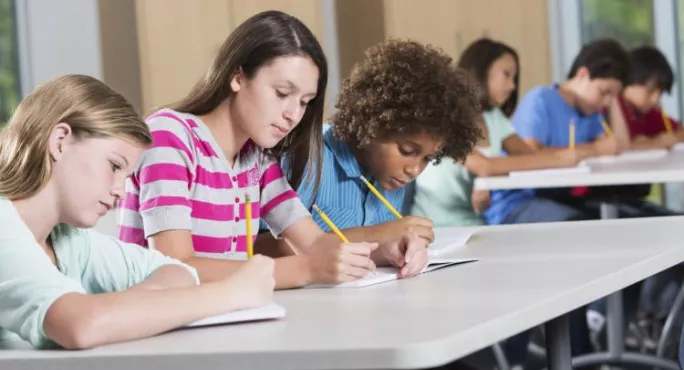Hundreds of schools are searching for new ways of supporting and helping lower ability pupils, prompted by fears that tougher new GCSEs are leaving a “forgotten third” even further behind.
Tes has learned that since May more than 500 secondaries have signed up to a new “Build Up” programme designed to boost low-attaining pupils’ character, and performance in English, maths and science, using online learning.
PiXL, the partnership of nearly 3,000 schools that developed the programme, says it is used by heads who don’t want to end up excluding or off-rolling such pupils.
Analysis: Do new GCSEs give all pupils a ‘fair deal’?
News: Heads launch ‘commission of inquiry’ over GCSE results
Insight: ‘There’s no excuse for lagging behind on English and maths’
The Association of School and College Leaders is concerned that “something has gone wrong with the content of the GCSE”.
It says schools are also adopting an array of measures as they attempt to help lower ability pupils cope with the increased demands of the reformed qualifications, specifically designed to be harder.
GCSE booster classes
These measures include additional lesson time for maths and English, extending GCSE courses into Year 9, and running after-school booster classes.
It was the ASCL that first raised the alarm about the plight of the “forgotten third” of pupils - those who fail to secure at least a grade 4 in English and maths.
In March a report from an ASCL’s commission of enquiry into the issue found that 36 per cent of pupils - 187,000 children - did not achieve a grade 4 in both subjects in 2018.
With grading statistically pegged to previous years’ performance, the expectation is that a similar proportion of pupils will miss out when they get their results later this week.
Sir John Rowling, chief executive of the PiXL partnership, said the reformed GCSEs failed to give “lower ability pupils much aspiration”.
He said the new exams risked leaving the lowest-attaining pupils - or the “underestimated third”, as they are described by PiXL - with no qualifications.
“The reformed GCSEs have made this worse,” he said. “You can’t really celebrate a grade 3.
“They are much more memory-focused and intensive. The presupposition is that every kid will morph into an academic. Well, we have our doubts about that, especially when pupils are disengaged.”
Avoiding exclusions
Asked why so many headteachers had signed up for Build Up, he said: “I would hope it’s a moral dimension.
“But it’s also pragmatic to try not to exclude or off-roll students. No headteacher wants to send a child out after five years with nothing.”
ASCL general secretary Geoff Barton said Ofqual’s system of comparable outcomes - whereby grade boundaries are adjusted to ensure that results remain roughly the same year-on-year - made it difficult to improve attainment for the “forgotten third”.
It meant the proportion of pupils failing to achieve grade 4s in English and maths would remain consistent year-on-year.
“Leaders will be taking all kinds of steps - including allocating additional curriculum time and resources - but all of this is made more difficult by the funding crisis,” he said.




